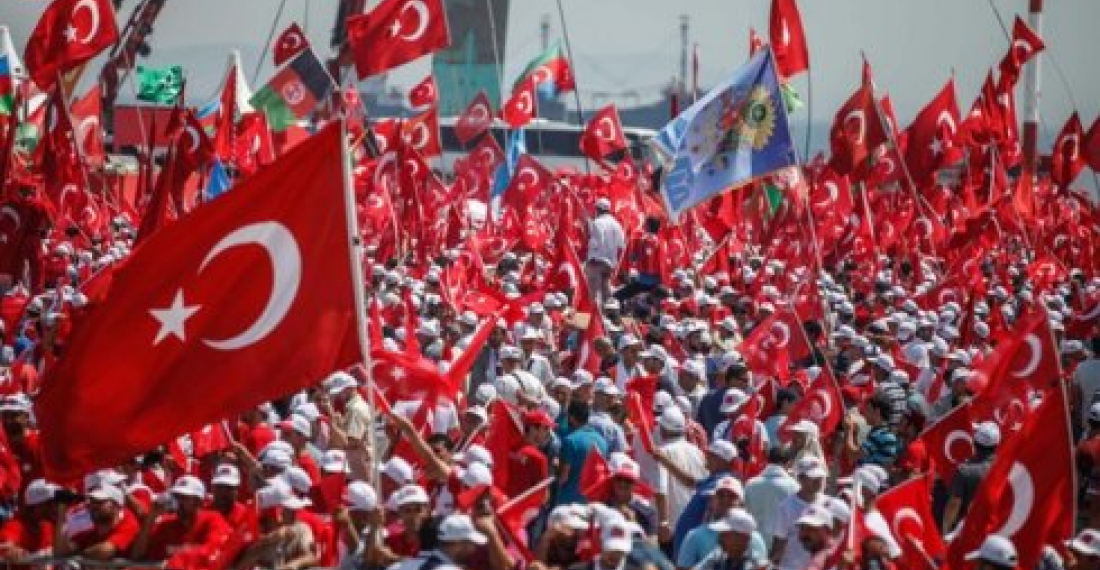Istanbul will later on Sunday see the biggest political rally ever organised in Turkish history. Millions of people are gathering from all over the country to participate in an unprecedented event called by the country's president and supported by all the key political parties. Millions of people are participating in the'Democracy and Martyrs' Rally' called to protest the unsuccessful coup attempt on 15 July which Turkish politicians blame on the Gulenist Movement.
The event is being held in the Yenikapi district of Istanbul and is to be addressed by President Recep Tayyip Erdogan and Prime Minister Binali Yildirım, who is also the leader of the ruling Justice and Development (AK) Party.
The leader of the main opposition Republican People's Party (CHP) Kemal Kilicdaroglu and Nationalist Movement Party (MHP) leader Devlet Bahceli have confirmed they will attend the rally which will start at 5 p.m. local time (1400GMT).
source: commonspace.eu
photo: People gathering in Istanbul for a massive rally on 7 August (picture courtesy of Daily Sabah)






